Using box storage is the perfect way to store belongings, whether you’re a student storing belongings for the summer or moving home.
It's a convenient solution and can be more cost-effective than using a traditional storage unit.
However, the thought of organising your stuff to be stored can be a bit overwhelming, particularly if you have a lot to put away. So, we’ve put together these helpful tips on how you can create the perfect system to organise your belongings before putting them into storage.

Step 1. Declutter
Depending on what you’re storing, this first step can be a little tricky, but if you do it right, it’s one of the most effective ways to figure out what to store.
Decluttering allows you to go through your things and understand what you have and what you want to throw away. This step can reduce a lot of the stress when packing later, as you’ll have already sorted out the belongings that you want to keep and place into box storage.
Step 2. Clean Your Belongings
While you’re organising and decluttering, you may want to clean your items before storing them. You’ll be surprised at how cleaning your stuff before storing helps prevent dust build-up. We recommend wiping down hard items, washing any clothes you’re storing and vacuuming soft items, like cushions or pillows, before packing them into boxes.
Step 3. Organise Your Stuff
After you've decluttered and cleaned your stuff, the next step is the centre of the organisation process.
When you're placing a lot of items in storage, it can become difficult to remember everything you have. While some things are easy to remember, smaller items can often be forgotten about after months of storage.
To help you keep track of everything you’re storing, it’s a good idea to group items together. This could be by year, material, location, or size. Everyone is different, someone storing lots of clothes will have different needs to someone with a huge amount of DVDs.
We then recommend creating a list of all the items you want to store and, as you begin packing, tick each item off the list.

Step 4. Pack Your Boxes
Once you've organised your items, the next step is to pack your storage boxes. When storing with Access Box Storage, we provide as many storage boxes as you need for free, to make your move as smooth as possible.
We have some top tips for packing your items safely and securely:
- First, line your storage boxes with bubble wrap to prevent any damage to your items. You can buy packaging materials during our checkout process, so no need to worry about purchasing these separately.
- For any delicate or fragile items, wrap them in more bubble wrap for extra protection.
- We recommend packing your box by placing the softest items at the bottom and top of the box, with your most precious items in the middle.
- Pad out any extra space in your boxes with scrunched up pieces of tissue paper.
- Use parcel tape to securely seal your storage boxes along all seams.
Step 5. Label Your Boxes
When you’re packing your items for storage, it’s a good idea to label your boxes as you’re packing them. This is a great way to keep track of which boxes you’ve put your stuff in.
On the top of our free boxes there is space to write your name, order number, box number, and box contents. It’s also a good idea to write this down on a separate piece of paper to help you remember which boxes you need returning. We use this information to return the correct boxes to you when you need access to your stuff.
Ready to Store?
So, if you’re looking for cheap box storage in London, Access Box Storage can help you out.
Simply enter your London postcode into our search bar to make a booking and select how many boxes and larger items you’d like to store and how long for. We’ll provide you with free boxes. Then, you can take your time packing and storing, and we’ll come to collect your boxes whenever you’re ready! It couldn’t be easier.
Check out our FAQs if you have any questions or get in touch with us today.
A few things are as exciting as holding in your hand your first flat’s keys. Are you new to the renting world and approaching renting a flat for the first time?

If you are starting to look for a new home, it can be a challenging - and confusing - time. Reaching a new level of independence is such a formative experience: with the right tricks, you can make sure everything will go smoothly.
From choosing the right home for your budget and your needs to assuring your rights as a tenant are protected, there’s certainly a lot to think about. We rounded up useful insight on how to find the ideal flat, manage admin and finances, and finally enjoy your new life!
Renting a flat for the first time, quick tips:
- Write a checklist
- Choose your area
- Is the property in good condition?
- Get a good deal
- Deposit and additional fees? Know your rights!t
- When your new London flat get’s too small…
Tips for renting a flat for the first time
Write a checklist

If you need to narrow down your options, write down a list of practical features that you’re looking for in your property. And don’t be afraid to be specific: having an extensive list of pros and cons will help you choose the right flat. You just had a crush on a property, but will it actually meet your needs?
It’s good to follow your gut feeling, but finding a flat and signing a contract is a big deal: try to have more of a rational mindset. Your list could include anything: a reliable web connection if you prefer carpet or a wooden floor, a bathtub or a shower.
Will it come furnished or unfurnished? Furnished homes tend to come with at least the main items you’d expect in a property, such as beds, chairs, tables and storage units. If the flat is cheap but will come unfurnished, it will require an initial investment which can get quite expensive.
Choose your area
It is essential to consider the location of your new flat. Is it close to useful transport links? How long will it take you to commute to university or work? Is it a safe area? Do you have easy access to shops? Take some time to have a walk in the neighbourhood to get a feel of the surroundings.
Is the property in good condition?
On the day of the viewing, make sure to have a close look at the condition of a property. Examine if there are any signs of mould on the wall and ceilings, check the windows and doors to make sure they’re secure. Run the taps and shower to test the water pressure and ask when the boiler was last serviced. Flush the toilet to make sure it’s working properly too.
Get a good deal
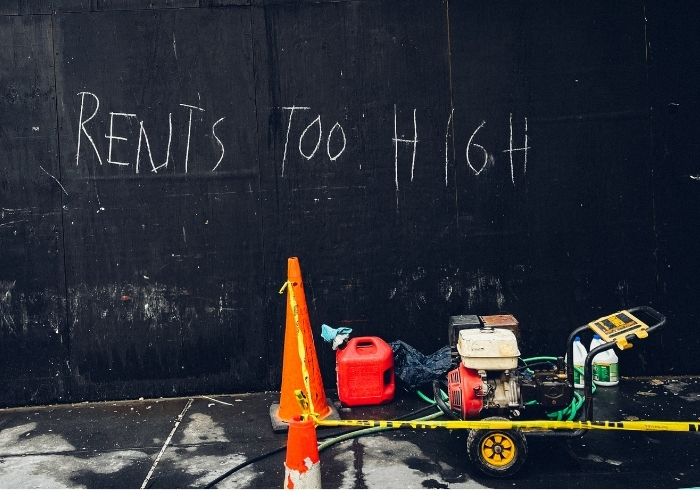
Do your research before signing a contract: compare your rent with prices of similar properties in the same area. Make sure you know exactly what’s included in the rental payments. If something is not included, try to estimate council tax, utility bills, or water charges.
Deposit and additional fees? Know your rights!
Since 1 June 2019, most fees charged in connection with a tenancy are banned. A charge to reserve a property is permitted, but it must be refundable and it cannot equate to more than 1 weeks’ rent. Viewing fees and tenancy set-up fees are not allowed.
There has also been a cap on the deposit that the tenant is required to pay at the start of the tenancy. If the total annual rent is less than £50,000, the maximum deposit is 5 weeks’ rent. If the annual rent is £50,000 or above, the maximum deposit is 6 weeks’ rent.
When your new London flat get’s too small…
If you had a look into flats in London, you probably already noticed that they’re anything but cheap. You won’t usually have much space available unless you have an impressive budget. There are easy ways to optimise your space, and one is to bring in your flat only what’s necessary.
Declutter as much as you can before moving in, and keep on one side what you won’t need on a daily basis. Why not consider storage space for those items? Anything that’s bulky and you won’t need all year round: winter clothes, your duvet, any sports equipment you use on rare occasions, documents and paperwork, and so on.
With Access Box Storage, you can store and preserve them safely until the moment you need them back: from only £7.50 a box per month, it can’t get any cheaper than that. In this way, you can choose the flat you love without worrying too much about storage space and enjoy this new, exciting chapter of your life.
Living in London - one of the most exciting cities in the world - has its perks. The downside has to be the expensive rent, and the little space available in your flat.
This doesn't mean you have to give up anything you love for extra space: with a strategic approach and some decluttering, you'll figure out how to store your clothes if you have little room.
With summer fast approaching, there is no better time than now to give your winter wardrobe some much needed extra care before packing it away for summer hibernation.
How to store clothes? By following these steps:
- Sort your clothes
- Declutter
- Clean
- Categorise
- Store away safely
How to store clothes for storage: 5 easy steps
1. Sort your clothes

Start by pulling out the entire contents of your wardrobe. Whilst this may seem overwhelming, it is the best way to remind yourself of the clothes you already own in order to begin organising. You are more than likely storing stuff you don't even remember having, and this will also be a chance to clean your wardrobe before putting back the clothes you'll keep.
2. Declutter
We accumulate so many things throughout our lifetime, for whatever reasons we choose to hold on to them. Whether it's because we spent a lot of money on them, or we feel like we may be able to use them at a future point in life, having a minimalist approach to fashion can actually be so liberating.
You can declutter anything that is unnecessary: overworn sweaters, jeans you haven't been wearing in ages, that outfit that always makes you feel overdressed. Put on one side what you haven't been wearing in the past 6 months or more. Be realistic about what you wear to work, at the weekend, or to events: identify what you wear most regularly and concentrate on these pieces.
Place the ones you want to declutter in a box or bag right away that can be dropped off at a local donation centre. Don't throw away stuff that someone else would need!
3. Clean the clothes
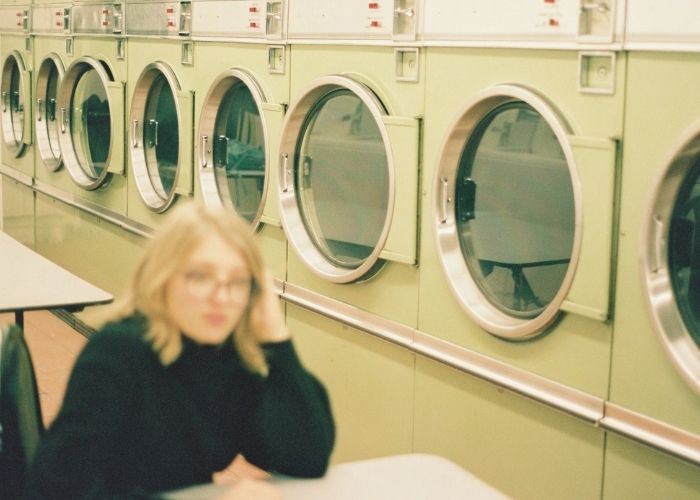
Put the summer clothes back in your wardrobe, and now concentrate on those you won't need in the warmer months. It is important that you give your Winter clothes a clean before packing them away. Remember to check care labels before washing, especially as Winter garments such as cashmere may require a specialist cleaning technique.
4. Categorise
It can be really helpful when sorting your Winter clothes to create labels for each box or storage bag. This will help to have everything organised for when you'll need them again.
5. Store away safely
Decide whether you are going to store unseasonable clothes away. In that case, how and where will you store your out of season clothes?
Access Box Storage gives you the perfect safe space where your items will be stored and impeccably preserved until the next season. In this way, you'll be able to rotate your wardrobe and gain much more space in your flat! Consider wrapping delicate items individually in tissue paper or using vacuum-sealed storage bags for bulky items.
How to store baby clothes?
If space in your flat isn't plenty, the first thing you want to figure out is if there's anything you're not using that you can put aside. The best example? Baby clothes. Babies grow out of clothes so fast: they just get taller by the minute. The same goes for their shoes and accessories: beanies, gloves, socks and underwear. Wondering how to store baby clothes?
If you plan to save them for future use, especially if you're thinking of having a baby number two (or three, or four..), then you're in the right place. You can declutter, organise, label, and pack away baby clothes in storage boxes. First of all, make sure again as a first step to clean everything.
This is an important step, as babies and stains go hand in hand: you want to keep what's in good conditions. It is also an excellent way to declutter what won't be used again. Decide which clothes are worth keeping: pull out anything that isn't in good condition, anything visibly stained or damaged.
A key step: sort by size!

Sort the baby clothes into piles by size or age. You can do this on a clean surface and put different post-its with each size written on them. Then, place each item under the correct pile. In this way, you will keep everything tidy and won't get a headache in remembering which pile is the correct one.
Fold everything in a neat way while doing so: then, put one size only in each storage bag. Things will stay organised and easy to find; don't forget to label each box with the size of the clothes.
How to store baby equipment?
Prams and pushchairs, high chairs, walkers, sleeping bags, sleeping cribs, car seats: equipment for babies can take up so much space. Especially considering you won't need those items permanently. Using storage space for baby equipment is a great choice to save space, preserve them adequately, and save money as you won't have to buy those a second time.
Make sure they're thoroughly cleaned and sanitised, as you want to prevent bacteria from growing. Dismantle them when possible, and wrap each part in bubble wrap.
Make sure to keep each item in a separate box or bag, and add labels to keep everything organised for when you'll need them next time.
Moving can go way smoother than you think if you rely on a printable checklist for moving house. In this way, you can make sure all steps are followed at the right time, and you won’t have any last-minute emergencies.
With a moving house checklist, you’ll have time to brainstorm on what’s the best approach for your moving and to schedule the next steps. You’ll gradually start packing and get everything sorted on the admin side.
We kept the two separated so that the printable checklist will be extra clear!
Moving house checklist: Two months before the move
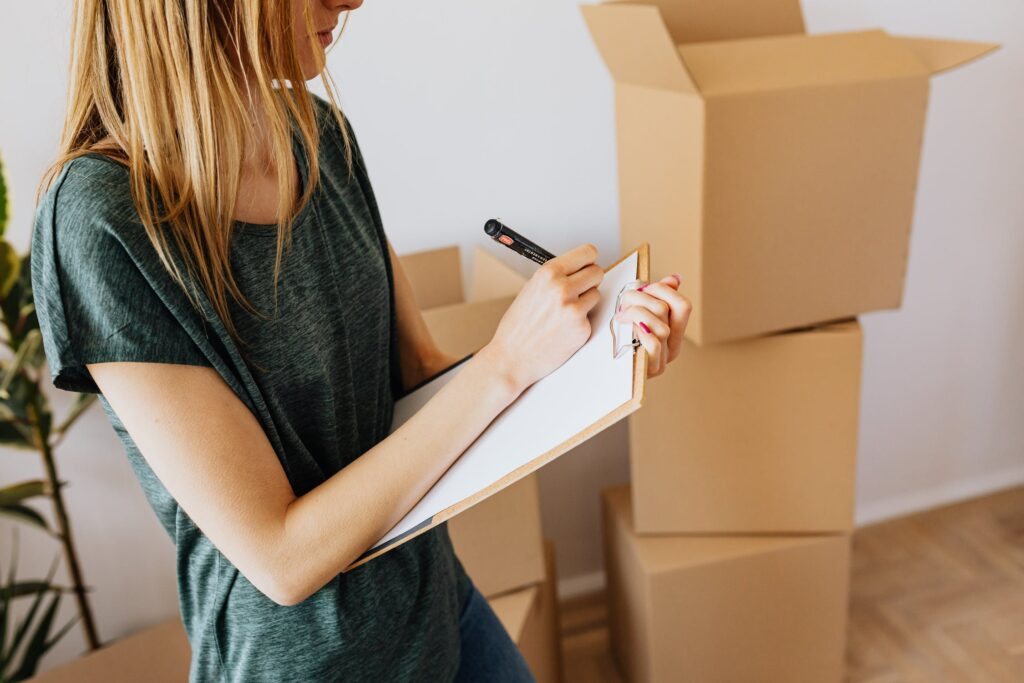
Jobs-to-do
- Declutter - book a visit to the tip and plan a trip to charity shops to get rid of all things you don’t need
- Collect boxes - post social request and ask friends for spare boxes or request from a supermarket
Admin-to-do
- Renters: give notice to your landlord
- Notify phone and internet providers about your change of address
- Plan temporary storage to help make your home more presentable for buyers. Visit Access Box Storage to begin this process
One month before the move checklist
Jobs-to-do
- Start packing spare bedroom and rarely used items
- Clean out and pack up the shed and garage
- Buy additional packaging you need
Admin-to-do

- Research and book a removal company – Checkatrade.com and comparemymove.com will show your best local options
- Research and book van rental – If you’re moving your own belongings
- Research and buy moving insurance to cover your belongings during transit if your removal company doesn’t provide
- Contact Royal Mail to organise post redirection
- Make an inventory of your belongings and take pictures of valuable items. You can check the pictures after the move to see if anything has been scratched or chipped
- Inform car, home and life insurance, council, doctor, friends and family of your moving date and new address
1-2 weeks before the move checklist
Jobs-to-do
- Start packing away non-essential/seasonal items that won’t be used in the next 2 weeks
- Plan and cook recipes that will use up all the food stored in the freezer
- Dismantle larger furniture that will not move in one piece
Admin-to-do
- If needed book the day off work or arrange childcare or pet care for the day of the move
- Research and book storage to store non-essential items you won’t need when you move into your home. Having more space allows you to better arrange your home
- Confirm location, date and time with the removal company. Arrange parking permits if needed
- Renters – schedule time for key handover and house inspection with your landlord
- Redirect your TV license to your new home address
1-2 days before the move checklist
Jobs-to-do
- Finish the packing – making sure to label the boxes with the room that they will be moving to in your new house
- Put the final load of washing on so that you’re not moving dirty clothing
- Pack important documents and valuables in a marked-up separate box so they’re not mixed with general belongings
- Pack an overnight bag so that you have everything you need for your first night and day in your new home
- Get the tools ready and disconnect all appliances that you’re taking with you and defrost your freezer
- Pick up the van if you’re moving your own belongings
Admin-to-do
- Re-arrange grocery delivery to your new home address
- Contact utility companies to let them know your moving and your new home address
Moving Day
Jobs-to-do
- Inform the removal company on the label instruction on your boxes
- Renters – take photos of each room as proof of the condition you left it in
- Enjoy the moment you’re moving to your new home
Admin-to-do
- Take the final meter reading
Your new home list
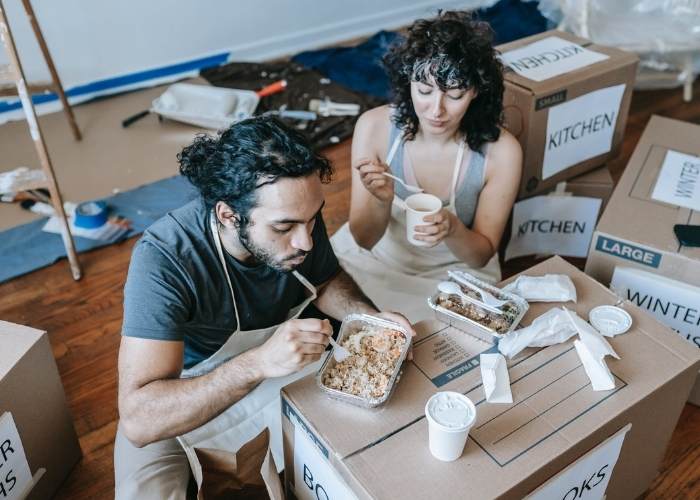
- You did it! Time to take a deep breath and give yourself a pat on the back.
- Unpack your first day bags so that you have the essentials in your bedroom, bathroom, and kitchen.
- No cooking for tonight: order your family favourite takeaway and enjoy your new home atmosphere.
Moving is a rite of passage in someone’s life that doesn’t have to be the way it’s conventionally portrayed. It’s a challenging process - this has to be said - but with the appropriate arrangements and the right mindset, you’ll be able to get through it smoothly.
Selecting and dividing are keywords. Therefore, cardboard boxes will be your number one allies! Moving simply isn’t possible without them.
Where to find and collect free cardboard boxes? There are many options, including:
- Local Supermarkets
- DIY stores
- Discount shops
- Food Restaurants
- Freecycle
- Local recycling centres
- Opting for Access Box Storage as your London moving & storage service
Free Cardboard Boxes: Ask at the supermarkets & stores
Where to get free cardboard boxes in London? Supermarkets and stores are some of the places where you can easily find and collect cardboard boxes for free.

Supermarket stock is delivered on a daily basis to stores in cardboard boxes: you can ask if they have any large ones in good conditions for you to use.
Try to go to your local supermarket at a time you know won’t be busy, or ask when the next delivery will be and go then.
Boxes from local restaurants
All restaurants get stock delivered in cardboard boxes on a daily basis, so a little trip to your local restaurants can be worth a try. You might be lucky enough to find one really close to where you live.
If you’re a regular, they’ll be even more motivated to get rid of boxes they don’t need. Ensure the boxes don’t have any spillage and try to opt for boxes containing dry items.
Find free cardboard boxes at Freecycle
Freecycle gets you in touch with people who recently moved and don’t need their cardboard boxes anymore. It’s important to check that the boxes are in good condition, as they already endured one (or more) movings.
Local recycling centre
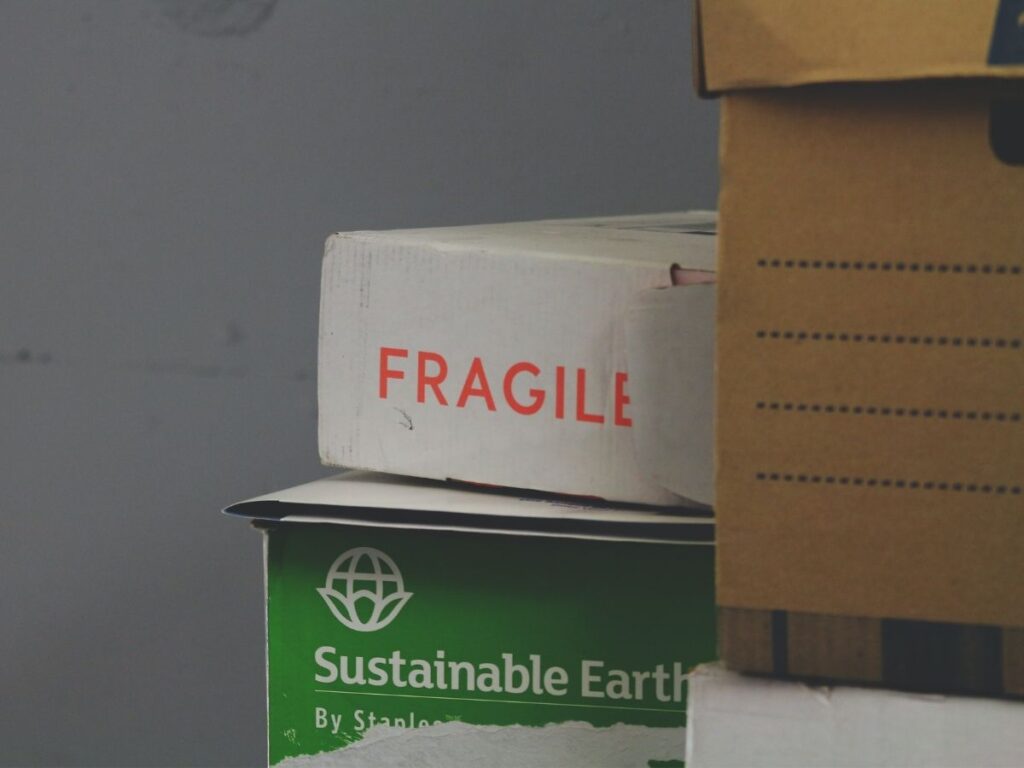
If they’re not re-used, this is where most cardboard boxes end up. You’ll find them flattened down, but they can be strengthened with packaging tape easily to return to their original shape. Just be careful again to look for boxes that are in good condition and clean.
Free boxes from Access Box Storage
Using second-hand cardboard boxes comes with the perk of saving money, but what if you could get new free boxes for free?

If you're moving around London, opting for Access Box Storage mean you'll be able to save money and preserve your items impeccably until they reach your new address.
When you place your storage order with us online, we will deliver your empty boxes (current special offer) to you at the time you have specified. You can schedule your full box collection up to 2 weeks after we have delivered you your empty boxes.
Using old boxes vs new boxes for moving
Whenever you can, always use new, sturdy boxes when you’re packing for storage!
Used ones could have dried spillage, which weakens the box & attracts ants and cockroaches. If you plan ahead, you’ll keep your belongings in boxes for a while, so you want to make sure they won’t be damaged once you open the boxes.
Extra tips: How to pack moving boxes properly?

If you’re wondering how to start packing boxes for moving and what to do, you landed in the right place. We’re sure these tips and tricks will help you.
- Start packing with the right materials and tools. Boxes, but also packing peanuts, bubble wrap, packing paper, tape, scissors, marker, ziplock bags for small items. You may also need to prep a box cutter in case you need to pop open a box that you’ve sealed.
- Choose proper boxes for moving. Avoid anything that once contained food and drinks. Old boxes are also less sturdy, so the safety of your stuff is compromised.
- Plan ahead with a list and schedule. Give yourself attainable goals, and the timetable to achieve them will ease your burdens. Doing this early will also give you a chance to declutter.
- Prep moving boxes. Don’t forget to line the bottom exterior with tape for an added layer of security. Pad the bottom of the interior: this serves as a shock-absorber in case someone drops the box.
- Fill the boxes properly. Try to mix your heavy items, like books, with a few lighter ones to stick to that weight limit. If you have space left to the top, add packing peanuts: the goal is to keep the top firm.
- Label the moving boxes. This is such a crucial step! Mark which room does a specific box belong to and make a rough list of contents.
Offices are far from over, and office storage ideas will soon come in handy more than ever. With the official government’s roadmap to begin easing lockdown in England from March 2021, we are carefully approaching a comeback to the office life.
The promising vaccine news is encouraging the return to work, but when that comes, the office won’t be the same again. What will that mean for the workplace? Most companies have adopted new ways of working that have left their offices relatively empty, and many office workers won’t grind out a full week 9 to 5 at their desk again.
We’re understandably apprehensive about returning to the office after such a long time, but we’re equally excited about having a glimpse of proper social interaction.

The increase in remote working will see businesses look to more flexible and relatively smaller workspaces. The days when a company would provide a desk station for each and every staff member are coming to an end: a trend that was already taking shape, but the pandemic has dramatically accelerated it.
What will this mean for employees, in practical terms? We’ll make more with less office space, and we’ll need to gradually adjust to this work-from-home/work-at-the-office hybrid. With offices relocating, you will need extra space and personalised storage solutions: some can be implemented immediately, often for very little or no money. We rounded up some tricks and tips for making your return to the office efficient and smooth!
Office wall storage ideas
Try to think of office storage ideas that are considering the space vertically. Making the most of all the space between your floor and ceiling can provide you with precious storage. Shelves are a great solution, together with wall mounted furniture, while wallboards are perfect for keeping your office tidy.
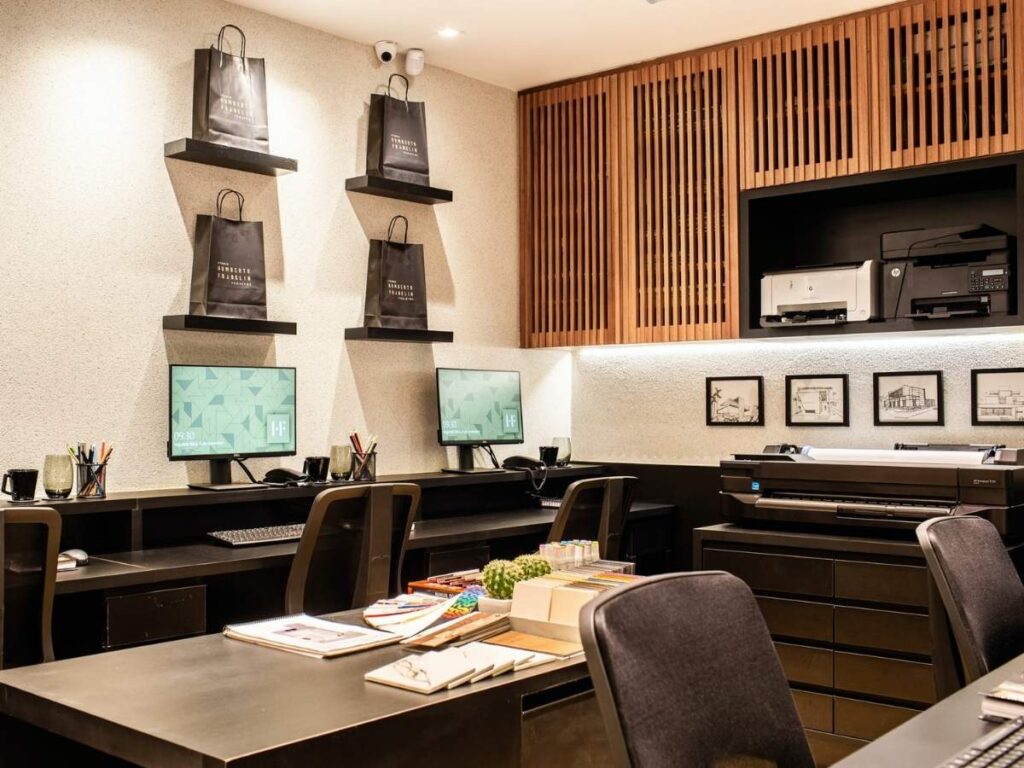
They’ll avoid having post-its and clutter all over your desk, which is pretty much everyone’s weak spot. There are also plenty of flexible storage solutions that can perfectly adapt to your office space and its walls. Whether you need to adapt to a corner or to an asymmetrical wall, modular furniture is sometimes a real space saver.
Office desk storage ideas
Finding the right desk can be key: opting for a foldable desk is such a functional choice. It folds up when you need it and folds down at the end of the day - taking very little space. You can also find a desk with drawers where you can keep all your stationery or add a complimentary storage caddy close to one of the desk’s legs, where you can store all of your office must-haves.
Keeping the desk tidy
Returning to the office is also a great occasion to reorganise your workstation and to make sure you’ll keep only what you truly need.

Decluttering will lead to fewer distractions and an overall sense of easier focus. With organisers and colour-coordinated dividers, you’ll know exactly where to look when you need something, and you won’t have to rummage through packed drawers along the way.
Get some storage space for a good price
Thought that the digital era would mean no more paper? It’s always very likely you’re surrounded not only with paperwork but also equipment, training materials and more. You need to store all of this while keeping your office looking professional. However, additional storage needs additional room, which isn’t always accessible. So what’s the best solution?
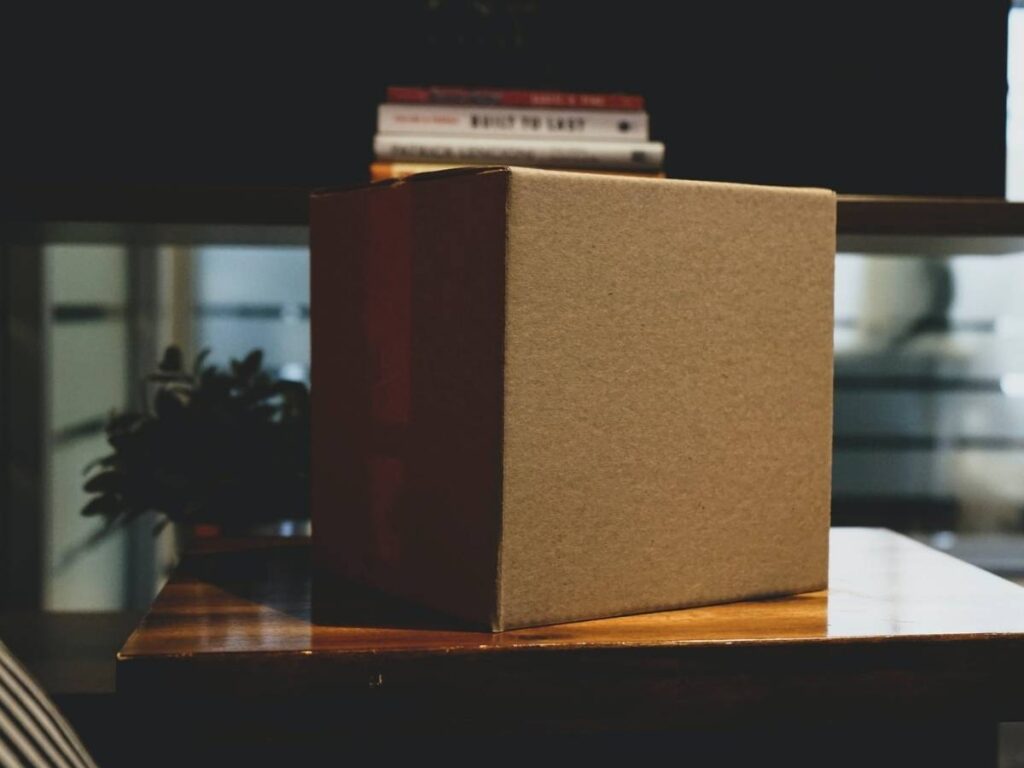
Once you have an accurate idea of what needs to be in your office on a daily basis, you won’t see the point in keeping close to you items that are equally important but you will hardly need to have at hand.
Archives, documents, paper records, contracts and so on: why shrinking your precious space for those? Fortunately, there are budget-friendly and hassle-free solutions to make your office space an airy and versatile working spot.
All the benefits of choosing Access Box Storage
If you need a reliable and efficient service that collects and stores your items until you need them back, then box storage is a perfect solution.
With Access Box Storage, you’ll get free storage boxes and a free courier collection, which will pick up your boxes (or larger items that don’t fit in a box) right at your office.
Our storage service is budget-friendly, with a pretty unbeatable price of £7.50 per box per month.
You’re worrying that having documents stored out of your office will make them inaccessible when needed?
Do not worry, as if you need anything back to the office again, Access Box can deliver boxes or just selected items back to you whenever required.
You can rest assured that all your belongings are in safe hands: the storage is safe with CCTV 24x7 surveillance. Whenever and in any way you’ll be back to the office, make sure you’ll feel safe, comfortable and efficient!
It’s true to say that in moving to a big city like London, you have access to many more opportunities. But, pretty soon, whether you're a student, a renter, a homeowner or a shop owner there’s one constant challenge and that’s a lack of space.
Whether you're renting a flat, paying off a mortgage or pay rent on a shop, you know that buying additional space in London will cost you a fortune.

Luckily, there’s an affordable solution to making space. By storing belongings, furniture or stock you don’t currently need you instantly free up and make better use of your existing space.
Storage prices in London vary because there are different types of storage services available to you.
As you would expect, self-storage prices are nearly double in London compared to other bigger cities in the UK, like Glasgow, Birmingham and Nottingham.
Storage prices in London also differ, depending on:
- What type of storage service you need
- The amount of space you need
- What company you choose
- What access you need to the items you store
What type of storage service do you need?
There are several types of storage services you can find in London:
Outdoor storage in London
Outdoor storage options are exactly that, they are open, guarded areas. Many of them are a combination of guarded car parks (for camping trailers or boats) and shipping containers in which you store your belongings inside.
Shipping containers range from 6 to 45 feet in length, creating spaces of 56 to 320 sq. ft., large enough to store the contents of a 6-bedroom house or 12 office desks. The cost of renting a shipping container is £425 plus VAT per month.
Self-storage in London
Self-storage provides space for individuals to rent and store their personal or business belongings. The storage space rented will be a locker or a unit. Lockers are up to 10sq. ft and units are typically from 15 to 400 sq. ft. The individual will take and pack the unit with their belongings. They’ll have access to the unit during store opening hours and may have access after-hours as well. When they’re finished with the storage unit, they’ll then remove their goods.
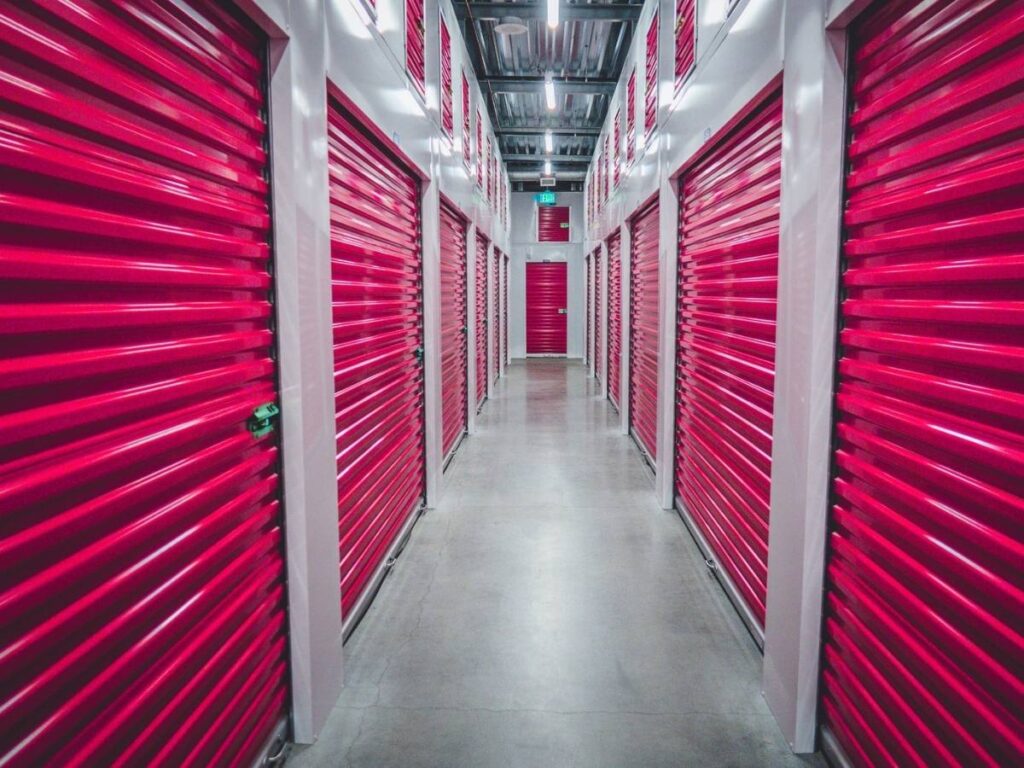
Self-storage price in London
Unit rental prices, depending on the space you need and the location of the unit. Most units are charged a standard rental charge however units closer to the lift, store exit and car park are charged as premium units.
Renting a 20 sq. ft standard storage unit in London: £44 - £64 a month
Renting a 35 sq. ft. standard storage unit in London: £64 - £92 a month
Renting a 50 sq. ft. standard storage unit in London: £92 - £120 a month
But, when looking for self-storage, don't focus solely on the price:
- Check online for which unit sizes are available as you don’t want too big or small
- Visit and check the security of the site and units
- Assess the location and the time you’ll need to travel to it
- Read the Google My Business reviews the store has gained
- See what additional packaging deals are available
- Be clear on any late payment policies
Storage by the box
Storage by the box is a new concept, and it's very different from the self-storage model.
The most significant difference is, you don't buy storage space, you pay for storing boxes that you’ve packed yourself.

Also, in storage by the box, you don't have to transport anything to the storage location. Free empty boxes are delivered to you, you pack them with your belongings and then the storage provider collects them from your doorstep. When you need the boxes back they deliver back to either the London pick-up address or another London address you choose.
Empty boxes, box delivery, box collection plus box protection are all included in the price.
The price for storing a box with a weight limit of 25 kilos is just £5.50 per box per month, but you can also store larger items for which you pay a little more.
When storing for a longer time in this model, you get a discounted price. For example, if you leave your boxes stored for more than 12 months, the price per box lowers to £4.40 per box per month.
Self-storage or storage by the box?
You may be confused about which storage option is right for you. We'll try to help you choose.
How much does storage cost?
The cheapest self-storage by square foot you can find costs £44 a month. A box is £5.50 a month. So, you can store eight boxes per month for the same price as renting the cheapest 20 sq. ft. unit. Eight boxes give you 200 kilos of storage.
Work out how much weight you need to store to help you save money.
Can you transport the items?
If you use self-storage you’ll either need to own, or rent a car, to get your belongings to and from the storage facility.
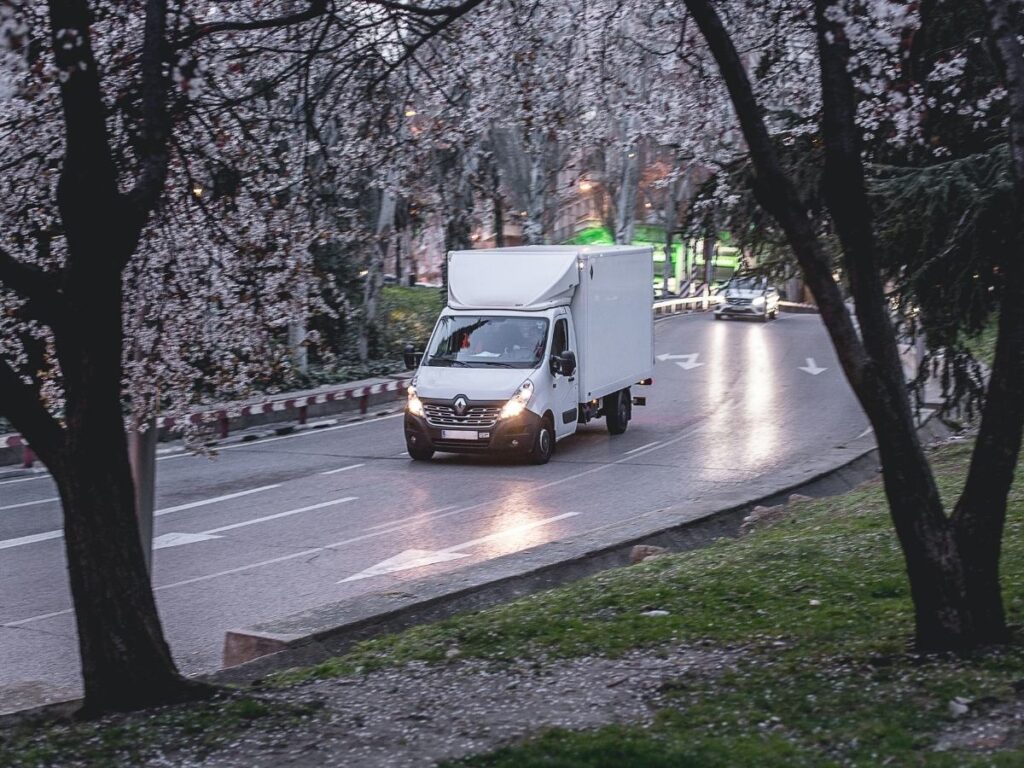
As for storage by the box, the empty boxes are delivered to you. You pack the boxes with your belongings and the storage provides collects them from your ground floor door. There’s no need to ever visit the storage facility.
Your Next Step
Compare the storage market with the knowledge that box storage is cheap, hassle-free and doesn’t need you to provide transport and self-storage is better for larger volumes where you do manage the transportation.
Whether you’re downsizing, streamlining or finally getting round to redecorating ‘that’ room; sometimes we find that we no longer have a place for the things that once made a place our own.

Getting rid of furniture feels like it should be an expensive process. Luckily for us in London, there are a number of ways we can get rid of unwanted furniture for free that are both easily accessible and eco-friendly.
If you're trying to get rid of unwanted furniture for free, you can:
- Try to leave your furniture outside
- Take it to the recycling centre
- Donate it to charity
- Sell it for a low price
We’ve thought of all of the possibilities and considered its pros&cons. Hope you'll find at least one of them useful.
Option #1: Leave your unwanted furniture outside
When we have to get rid of furniture, the first thing we think of is to do the easiest thing and just put it out on the curb in the hope that someone walking past will take a fancy to it.
Whilst this is no doubt the easiest option, there are a few things you need to consider before leaving your stuff out for the curb miners.
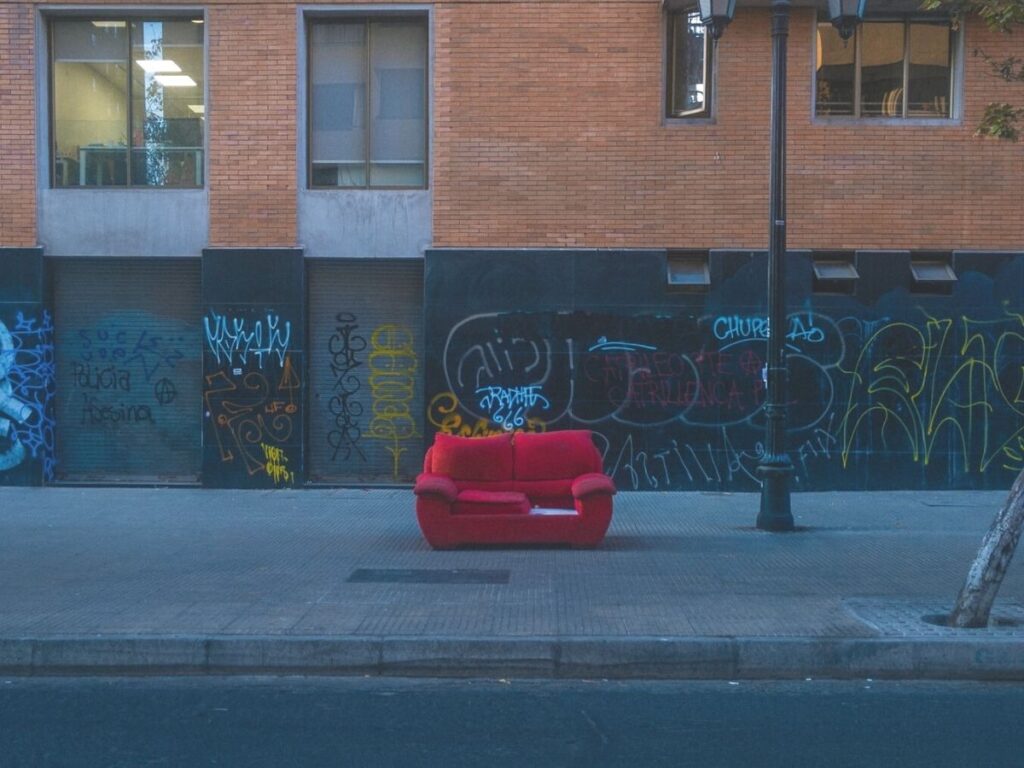
Firstly, leaving furniture on the street can be considered fly-tipping and you could receive a fine. There is no London wide policy on what fines can be served for fly-tipping and every borough is different. For example, in Kensington and Chelsea fines start from £150, but across town, in Lewisham, the lowest you can get is £250. The risk of a fine becomes more likely if you leave your stuff out in bad weather, it’s a particularly large item such as a sofa, or if you live on a quiet street.
Secondly, the site of an unwanted pile of furniture on the street could do little to help your standing in the community. You should consider your neighbours before placing your personal items in a public space, especially if you live in an apartment block or on a narrow street.
Generally speaking, if the items are good quality and small enough to carry, they will be picked up relatively quickly and you would be unlucky to face any fines. However, if you’ve got larger items, you should probably consider alternatives.
Option #2: Taking Furniture to the Recycling Centre
If you’re looking to pass multiple items on in one go then a trip to your local recycling centre could be the way to go.
Most tips now have dedicated recycling areas where people can leave unwanted furniture free of charge for others to pick up.
Most London boroughs have their own recycling centre that can be found through the local authority’s website. Unfortunately, once again, every borough is different so make sure you look up your local facilities rules on things such as bringing ID, the amount of waste you can bring and if there are any items they don’t accept.
If you don’t have your own transport, getting your furniture to the centre could prove a problem. Renting a van can be costly, so it may be worth checking out your local council’s bulky waste collection service. A handful of boroughs offer this service for free but most charge between £10 and £40 for multiple items.
Option #3: Get rid of unwanted furniture for free by donating it to charity
Many charity shops have some kind of furniture business where good quality donations are always welcome. This makes them a great option if you need to lose some furniture but can’t stand to see it go to waste.
The bonus with this option is that your unwanted furniture goes towards raising money for worthwhile causes whilst also standing a good chance of finding a loving home.
The British Heart Foundation and Sue Ryder are the biggest charity furniture retailers and both have shops dotted throughout London. BHF also offers free collections but availability can be tight, especially during the lockdown.
Again, it’s also worth checking with your council to see if they offer a charity donation service – it’s surprising how many do.
Option #4: Selling for a low price
Now, we all love a bargain but unfortunately, we’re all familiar with the phrase ‘too good to be true’.
Every time we see something advertised for free, a little voice in the back of our head asks us ‘what’s the catch?’ This can make giving your stuff away on sites like Gumtree and Facebook harder than you thought.
Instead, try sticking a token fee on to attract attention. A table that is given away for free definitely has a wobbly leg, but a table being sold for £20 is too good to miss.
Maybe you need some extra space?
Are you in between the moves? Or are you redecorating and you have some things to tuck away? If there's some furniture you're still holding on to, you might need some extra space temporarily.
If this is the case then it has never been easier to store small numbers of items at an affordable price for as long or short as you need. Access Box Storage offers the option to store items by the box or individually, meaning you might not have to say goodbye to that vintage lamp or favourite armchair after all!
This temporary storage solution is a really convenient one for anybody living in London. You just have to book the service. New boxes are then delivered to you for free, and pick-up is also included in the price.
Discover the details how it works and help yourself out!
Are you wondering what to do with those extra chairs or the sofa that's in the way?
Furniture storage can be tricky; there is more to it than you would think. Fortunately, we know a bit about storing stuff, being in the business for some time.
When do you need furniture storage?
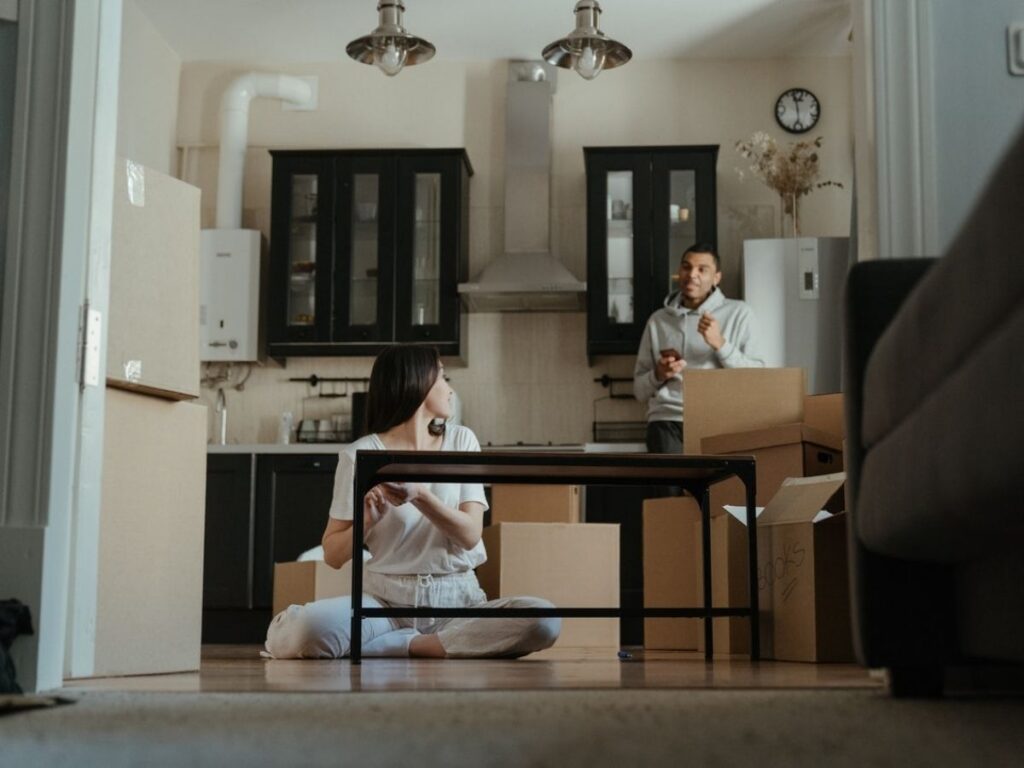
You would think that you don't need some furniture storage as you have just the right amount of pieces for your living space.
But, there are times when you'll really need to allocate some pieces in temporary storage:
- Furniture can get in your way when you're redecorating.
- The extra chairs for guests that take up the room.
- You're moving from one address to another.
- Renting your appartment (but without your furniture).
Additionally, furniture storage can also come in handy during the winter season. As the colder months start to approach, your outdoor and garden furniture become susceptible to external elements. If you do not have space in your garage or a shed to keep your furniture protected, placing garden furniture in a storage unit will ensure they stay pristine throughout the season.
How to choose the right type of storage?
Once you decide that you need storage, you can then find an appropriate place. Typically, your garage, basement, or attic may be good choices.
But, if you're living in London, you don't have that extra room. In that case, the ideal option will be to rent a storage unit. To help you determine the right storage for your furniture, try to answer these questions:
- How many pieces of furniture do you need to store?
- How long do you have to store the furniture?
- Do you have transport?
- How much does furniture storage cost?
How many pieces of furniture do you need to store?
First, determine how much furniture you plan to store. This will tell you how much storage space you need. If you only need to take away one or two furniture pieces, you can opt for storage that charges storing by piece, like us at Access Box Storage.
However, if you have enough furniture to fill a room, you should opt for self-storage.
How long do you need to store your furniture?
Another thing to consider is for how long you need furniture storage. If you're planning to undertake major renovation in your home, it can take a few months.
A little less time if you're between moves.
Some storage companies, like Access Box Storage, will offer you a discount for longer-term storage, bare that in mind.
Do you have transportation?

Finally, transportation may also be a concern when storing your furniture. Companies like Access Box Storage offer pick-up services to collect your furniture, as well as delivery services to return them when you need them back. This can some really convenient as you don't have to transport it around town by yourself.
How much does furniture storage cost?
The self storage option allows you to rent a room that cost from £11 - £16 a week in London (for 20 square feet). Plus, you have to bring everything there yourself
A much better version if you have just a few pieces of furniture lying around is Access Box Storage. Every piece has it's own price, you can check it after entering your postcode on the homepage.
A price for a chair for a month is £11 while storing a mirror is £5 a month. It's easy to calculate your expenses.
Don't forget! Prepare the furniture for storage
Don't forget to prepare the furniture for storage! Clean each piece thoroughly to prevent dust and odours from accumulating, then proceed to disassemble your furniture pieces (if you can).
Taking them apart will make packing and storage much easier, but make sure you place the smaller parts in a labelled bag to avoid losing them.
Before you place your furniture in the unit, you will also need to wrap them properly, keeping all sides and corners covered. Bubble wrap works well for wood furniture, while covers and blankets are more suitable for leather and upholstered furniture. Be careful not to use plastic covers that can seal moisture since this will cause mould to build up.
That's it! Start storing!